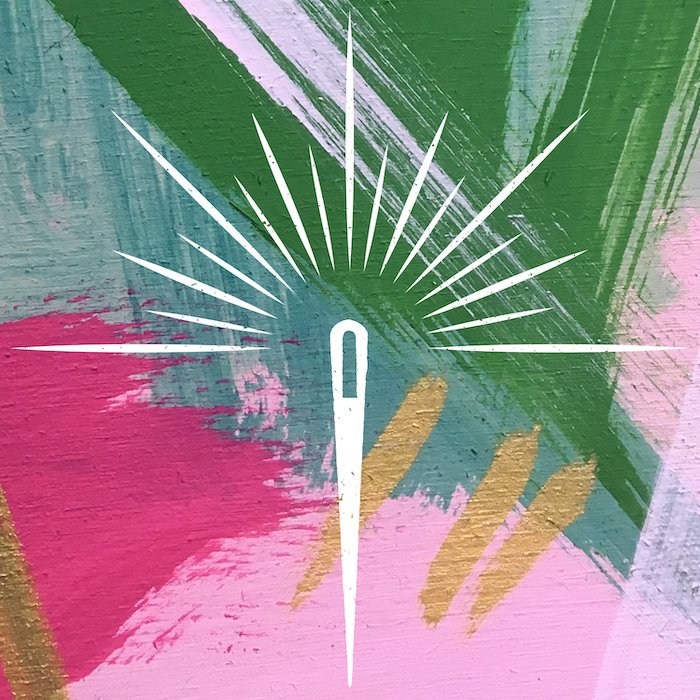LFW vs SFW
Is there a place for fashion weeks in a fair, representative and low impact fashion industry?
Today sees London Fashion Week (LFW) drawing to a close, having refreshed its format to take into account the Covid-19 restrictions – its programme now being both digitally streamed and as well as hosting appointments in person. There are some clear benefits to this format, pandemics aside. A little less travel, a little less pollution, more room for designers who may not normally get the airtime. And it challenged designers to be more creative in their plans for each show – Burberry, for example, presented their ‘Burberry in Nature’ show from the great British outdoors.
A shake up is no bad thing. The endless cycle of fashion weeks and the resulting whetting of appetites for the next season of trends which filter down to unnecessarily vast ranges on the high street… needed to stop, take a breath and reset. A theme for LFW this September was Reset – but I wonder how far this will be taken.
Fashion weeks are beginning to weave sustainability into their messaging and designers are playing with the latest in fabric technology… but I would question whether these go far enough. I would also question what the place of fashion weeks is in 2020 and beyond.
We know the whole fashion supply chain is flawed. Resources and garment workers are exploited, the global annual carbon budget is significantly contributed to by the industry and its pollutive impacts are also well known. Do fashion weeks exacerbate and perpetuate this flawed cycle by their promotion of the next new trend, the next season of new production – and ultimately new consumption? Is it enough to ‘tweak’ the product or the supply chain to make them more sustainable? Or do we need to completely overhaul the way we engage with clothing, fashion, trends, style and our own identities? Is there a place for fashion weeks in a fair, representative and low impact fashion industry?
The answer, for me, is of course there’s a place. The abundant creativity tied up with producing fashion is a vital force in the industry, and generally in the creation of art and interaction with culture. We need to foster and harness that creative force, but change its focus and intention.
For me a fashion week should bring fashion off the catwalks and back into the community. We should celebrate personal style and how we express ourselves through clothing. There shouldn’t be a focus on trend and aspiration. There should be instead an emphasis on how to express ourselves with safe planetary boundaries. We should be exploring how our experience of fashion can bring us together and hold a more central and connected place in our lives. A place where we share skills, information, knowledge and the very clothes themselves. We should be relearning making and mending as life skills. Fashion’s cycle should be the cycle of reuse. Fashion’s creative force should centre around how to create something beautiful with existing resources.
The focus should also be on how everyone (from every background, every age, every gender, every ability) can share in this creativity, personal self-expression and participate in a more sustainable fashion industry without having to have a certain level of funds or be shaped in a certain way. Fashion weeks are currently aspirational and exclusive – two aspects of the cycle of fashion which should be dismantled.
Sustainable Fashion Week (SFW) aims to take all this opinion and turn it into something tangible. I want to change the format and function of fashion weeks – or at least to provide an alternative.
Where LFW is an aspirational space for the fashion elite, SFW is a local, accessible space for the community.
Where LFW is the presentation of new styles and trends that we should look forward to wearing, SFW will support the community in finding new ways of wearing and using existing garments.
Where LFW is seasonal, SFW is season-less.
Where the LFW model of inspiration is top down, SFW will help share skills and knowledge so people in the community find their own inspiration through working with their clothing.
Where LFW informs us of what it believes style to be each season, SFW will provide a space for the community to engage with each other about their relationship with fashion, without needing to be directed.
Where LFW puts sustainability as an addition to their core programme, SFW places sustainability issues and solutions at front and centre of all our programming.
SFW was set up as the antithesis of LFW – a collaborative and community-led space that is relevant to an everyday, accessible, realistic relationship with sustainable fashion. Our programme won’t shy away from exploring the enormous challenges the industry faces, but it will also suggest practical solutions.
Our programme will be split into two parts…
- Firstly, we’ll hold two days of informative sessions in a Bristol city ‘hub’. This is where we’ll share information we’ve learnt and invite our visitors to share their knowledge and feedback on how we can work together to create an equitable, sustainable and representative industry. At the SFW hub we’ll also have a marketplace of local, sustainable fashion brands - selling new, preloved and repurposed.
- Secondly, we’ll curate a programme of mini events across the city, in as many areas as possible, in community and creative spaces. These events will vary in what they offer (whether it be skills learning, information sharing, clothes sharing or swapping, fashion shows…) but they will be held in the community, by the community.
We hope to empower, upskill and inspire people on the ground. And from this community activity we hope to encourage a movement of people taking the creation of a sustainable fashion industry into their own hands and off an inaccessible catwalk…

